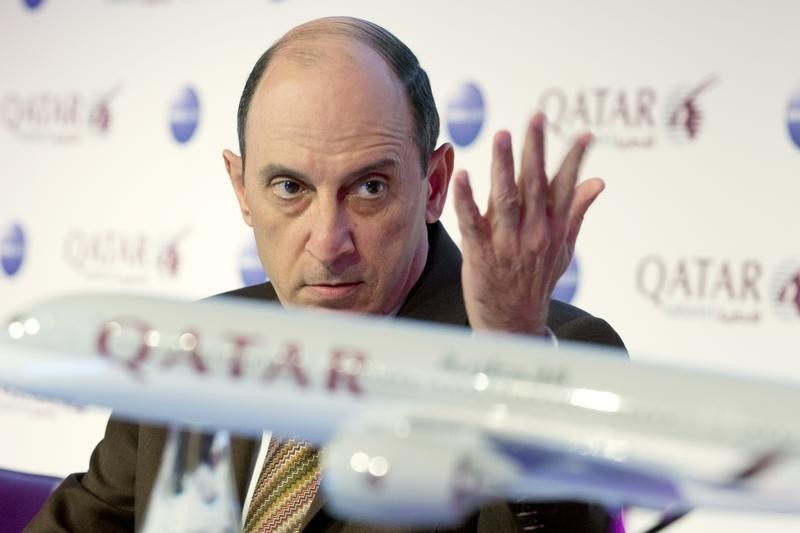By Alwyn Scott
MIAMI (Reuters) - Qatar Airways Chief Executive Akbar Al Baker said on Monday he saw no reason for Middle Eastern governments to propose any changes to transportation policy in response to U.S. airlines that allege unfair competition from Gulf carriers.
"Why should my government make any concession?" he said in an interview at the International Air Transport Association (IATA) annual meeting in Miami. "There is an agreement signed by two mature governments. And those agreements are being implemented."
U.S. airlines are trying to persuade the United States to alter "Open Skies" agreements with the United Arab Emirates and Qatar, accusing them of giving their airlines more than $40 billion in subsidies and distorting competition. Emirates [EMIRA.UL], Etihad Airways and Qatar Airways deny the subsidy claims.
Al Baker said Qatar Airways expects to deliver its rebuttal to the U.S. airlines' claims in the next few weeks. The three Gulf carriers are not coordinating their replies, he added, and he does not see any scope for negotiation.
"There is no olive branch on this issue," he said. Under the agreements, "we can deploy as much capacity as we want in the United States and the United States carriers can deploy as much capacity as they want in my country.
"It's a two-way street," he said." What is the problem?"
The dispute has divided an often-cohesive if competitive industry, and Al Baker spotlighted it in front of hundreds of IATA delegates on Monday. There were also concerns about protectionism.
"The danger is if you gave it for aviation, what industry would ask for it next?" Aengus Kelly, the CEO of aircraft leasing company AerCap, said in an interview.
Al Baker said in the interview that he was "absolutely confident" the United States would act "in the best interests of the people" who want Gulf carriers to serve them.
Separately, Al Baker dismissed reports that Qatar Airways was considering an initial public offering in the near future. He said the airline was at least 10 years away from such a move, having shelved the idea in 2008 because of the financial crisis.

He declined to discuss the FIFA scandal or the potential impact if Qatar is stripped of its right to host the World Cup in 2022. But he said it would not affect the airline's growth plans. He expects to have built up enough airline capacity by 2022 to handle the World Cup without ordering more airplanes.